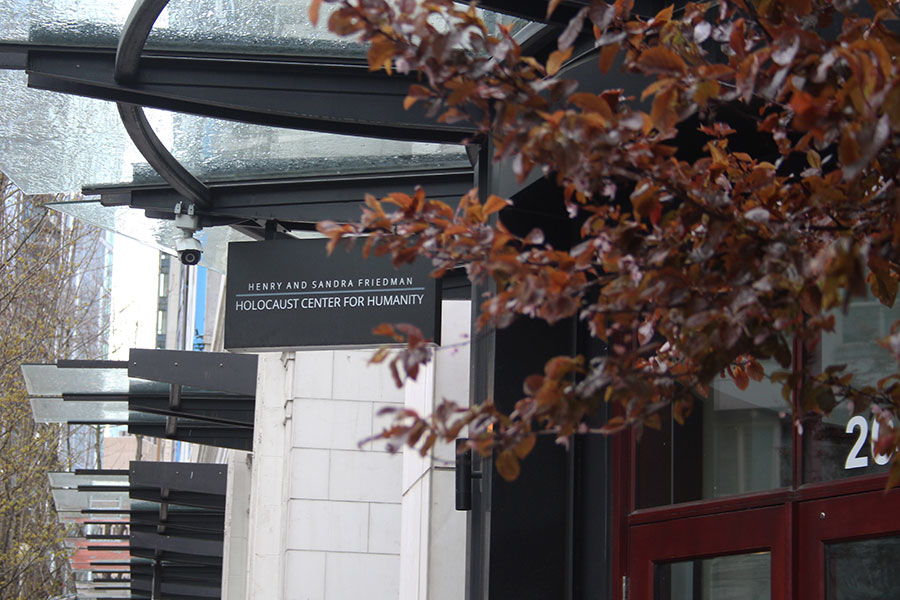Holocaust Center for Humanity Inspires Change
Published: April 7, 2017
SEATTLE, WA • From social studies teacher to specialist in educational research and evaluation, Linda Elman had been a key factor in kids’ education for years. Now she has retired, kind of.
Elman, even when retired, does a lot to help her community, from teaching a Hebrew class once a week to giving tours of the Pike’s Place Market to children every Tuesday morning. One of her favorite things is being the docent at the Holocaust Center for Humanity, which she has been doing for almost two years.
“I can’t say I’m the one who initiated working here [the Holocaust Center of Humanity],” said Elman when talking about becoming a docent, “but I had the experience of teaching European history and so it was natural for me. I had a background with the center, and it’s also down the street from where I live.”
(Photos by Jacob Lintner)
The Holocaust Center of Humanity uses speakers to go to classrooms to spread the word of the good and bad of people around this world. There speakers travel all over Washington, but also go to Idaho, Montana, Oregon, Alaska and Hawaii.





![2025 Snowcoming Pep Assembly [Photo Gallery]](https://FHNtoday.com/wp-content/uploads/2025/03/IMG_9969-300x200.jpg)
![2025 Snowcoming Dance [Photo Gallery]](https://FHNtoday.com/wp-content/uploads/2025/03/Snowco2025-Hmartin-3-300x200.jpg)




